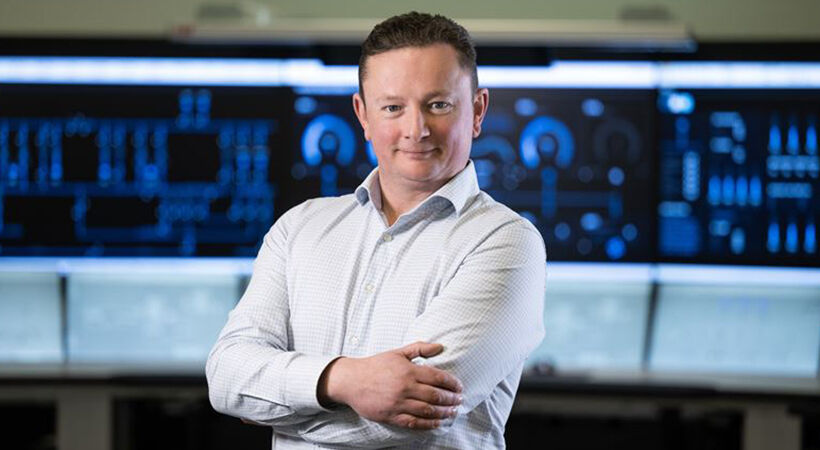Charles Bennett, global head of service, ABB’s Energy Industries division looks at recruitment in a shrinking pool of talent.
The global workforce is both shrinking and aging. While this creates considerable recruitment challenges, it also offers transformative opportunities for forward-thinking organizations that are committed to modernization.
By 2027, 11,200 people will reach the retirement age of 65 every day in the US. Additionally, in many countries across the US, Europe, and Central Asia, the workforce is forecast to reduce by 10% by 2050. Whether it’s oil and gas, power generation, or water, this creates a chicken-and-egg challenge across the energy sector.
In many countries, demographic shifts are leading to a shrinking workforce, leaving industrial companies with a significantly smaller talent pool to recruit from. Therefore, you need to introduce solutions that enable you to efficiently and securely operate your plants with fewer people. This means embracing AI and increasing digitalization and automation levels to enable plant operators to make smarter decisions. These solutions require attracting a younger workforce, but Gen Z and Gen Alpha talent are reluctant to work at industrial plants that rely on outdated systems and processes.
This has resulted in an escalating war on talent - a landscape where hiring companies are in stiff competition to recruit a shrinking pool of highly skilled employees. This is a war that can only be won by modernizing your control systems to achieve a more attractive and future-ready working environment.
Attracting and retaining talent
The control system is central to plant operations. It can boost productivity, drive efficiency, guarantee the quality of your product, and provide the reassurance of continuous uptime. Because it is at the core of everything, it must function to the best of its abilities.
Even if your current control system is running at an optimal level, now is the time to plan for transformation. Before performance deteriorates, commercial risk becomes critical, and talent looks elsewhere, it is sensible to embark on a sustainable, cost-effective, and step-wise modernization program. Because if you don’t, a competitor will.
At ABB, we took this approach with Austrian energy giant Salzburg AG to upgrade its gas turbine control system at its HKW Mitte plant. Using an in-house code translation process, a system simulator, and a virtual gas turbine model, the team was able to shrink the commissioning time from weeks to days, completing the transformation without any unplanned downtime, delivering maximum efficiency, low maintenance costs, high reliability, and lifecycle enhancement.
Today’s emerging workforce wants to operate within environments that leverage contemporary AI and automation solutions, like we implemented at HKW Mitte. New talent, for example, expect to be able to calibrate a field device remotely on a sophisticated control system. In contrast, outdated systems often require field devices to be calibrated on-site, frequently under demanding conditions. This isn’t the kind of environment the best new talent chooses to work in.
Our head of modernization, Volker Jung, has advised customers around the world on real-world impact of modernization. He often highlights how it can transform talent acquisition and retention, perhaps best illustrated by one of our customers located in Scandinavia near the Arctic Circle. Its plant, despite its extremely remote setting, successfully attracts and retains smart, young talent because it stands out by utilizing the latest control system technologies.
Automating the great knowledge transfer
It’s important to note that modernizing isn’t just about hiring from Gen Z. Many experienced operators and process engineers want to work with AI-powered solutions that help them to drive the plant harder and hit their KPIs. Helping them adapt to new technologies is critical, and a step-wise approach to modernization supports this.
Building on existing infrastructure enables a smooth knowledge transfer as your experienced engineers and operators begin to retire and your workforce transitions to a new generation. At ABB, we’ve developed a suite of augmented, machine learning-based algorithms that learn from experienced operators; capturing how they optimize plant output and respond swiftly to abnormal situations. These insights are stored and provided in real time to new hires, allowing them to carry out essential tasks independently, even when senior staff are not on shift, enabling a swift onboarding process to bring them up to speed.
This approach means there is no need to bulldoze everything for a complete system overhaul. By integrating new technologies and solutions layer by layer into your current infrastructure, you adopt a more cost-effective and sustainable path to future readiness. This method ensures minimal disruptions, no production loss, and a robust transfer of knowledge, making it a strategic investment rather than a costly disruption.
A matter of trust
Modernization hinges on trust: trust that your upgrades are business-critical, that the process will avoid significant shutdowns, that robust support will be available for unexpected issues, and that automating your control systems will enhance your organization’s ability to attract and retain talent.
Trust is paramount, and we’re proud to have earned it from our customers. As the global market leader in distributed control systems, we speak from a position of authority when discussing modernization, helping our customers understand that failing to do so would risk falling behind their competitors.
This deep level of trust and extensive experience is why we were asked to help evolve to new technologies, including modernizing a legacy distributed control system at the Naphtachimie plant. Based near Marseille, the facility produces ethylene, propylene, hydrogen, methane, ethane, and fuel for the French market. This comprehensive modernization program significantly improved performance, availability, and reliability, ultimately extending the plant’s operational life by decades and making it both future-ready and future-proofed.
Whoever you trust to automate your control systems, today is the day to start your journey. Failing to modernize is a fundamental threat to the long-term viability of your plant. Modernizing is a means to optimize operations, reduce costs, support the knowledge transfer between generations and win the war on talent.





